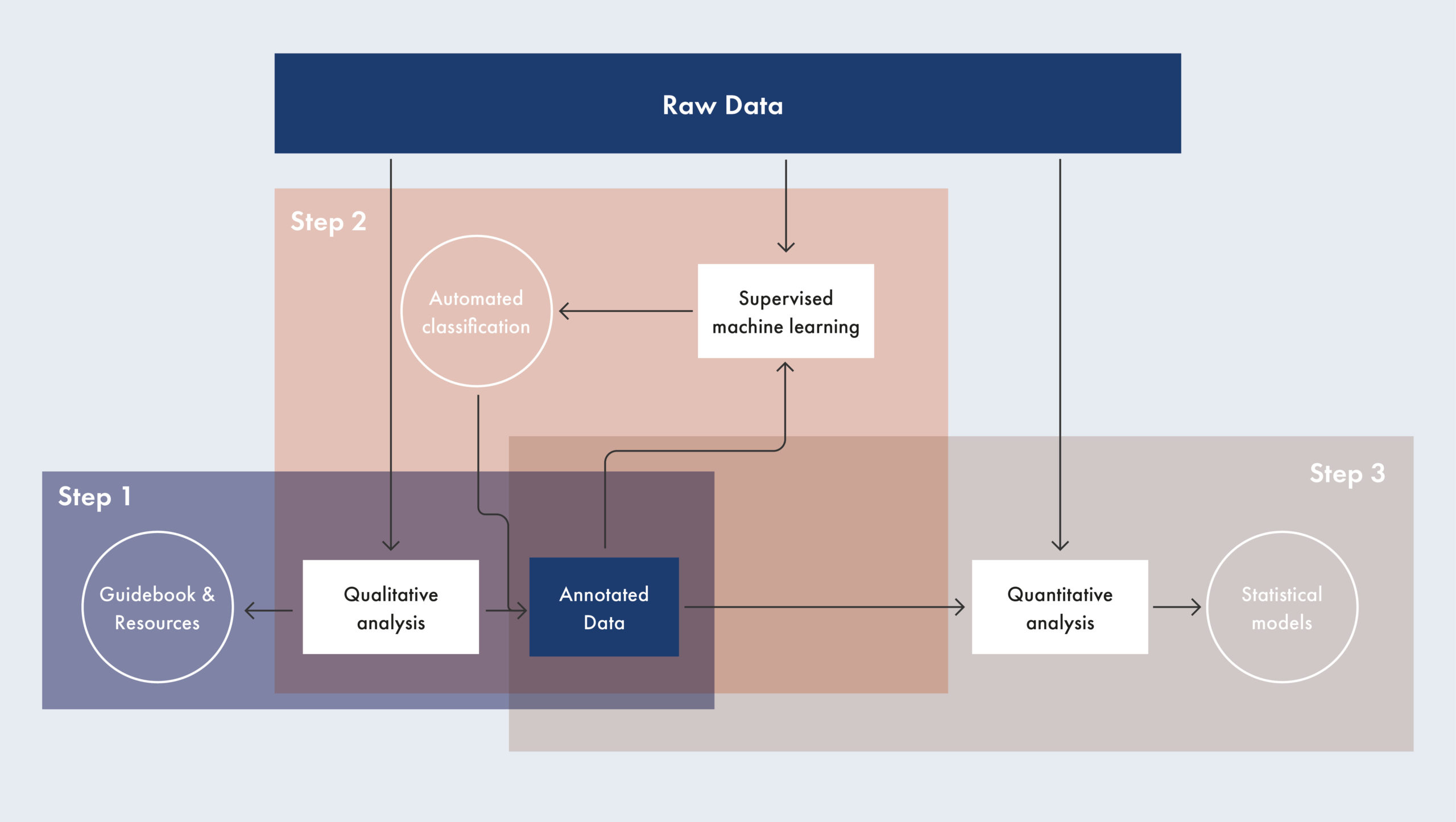About the project
“Decoding Antisemitism” is an interdisciplinary and transnational research project that examines antisemitism online, focusing on the political mainstream of selected European societies – the UK, France and Germany. Antisemitic discourse on the internet provides insights into the present and future of an ideology of hate which, due to its adaptability, permeates all social milieus and is currently experiencing a new high – not least due to the specific character of web communication.
For the analysis of antisemitism online, the research design must be able to capture it both in detail and in its spread. Accordingly, in this project antisemitism is analysed in several stages.

In the first step – qualitative content analyses – data sets will be examined and categorised by experts in linguistics, discourse and antisemitism research.
The data consists of user comments posted in response to reports published by leading media which have the potential to trigger antisemitic reactions.
The comments are categorised in relation to their antisemitic content and the linguistic and pictorial patterns by which they are communicated. In mainstream political milieus, antisemitic statements are often implicit or disguised – by means of puns, allusions, irony and rhetorical questions. The comparison of the content and formal levels of a comment is thus vitalin order to uncover their antisemitic meaning, as well as to grasp broader trends in the social acceptability of certain antisemitic concepts.
To facilitate the analysis of antisemitic discourse at the level of both content and structure, a code system and a guidebook has been in development from the start of the project, enabling coders to record, order and define the wide variety of antisemitic conceptsand their means of linguistic and visual expression. The guide makes it possible to identify antisemitic content according to a fixed scheme and to establish comparability across national borders.
In the second step, the analysed data is used to train models that imitate the decisions of our experts using a supervised machine learning approach. In this way, they learn how antisemitic concepts are currently formulated linguistically in the chosen web milieus. The automated classifications are constantly checked by our teams to improve the performance of the classifiers through a continuous correction process.
Step 3 consists of complementary quantitative analyses that capture antisemitism based on frequencies and combinations of previously catalogued words and word compounds in disparate datasets.
Combining the results of these three steps gives us the tools to describe and understand the manifestations of antisemitism and their communicative dynamics in contemporary online debates with much greater precision than would be possible with only one of these steps.
The results of the project will be made available not only to the academic world, but also to the interested parties in politics, media, education, law and security. Our findings will be disseminated in workshops and lectures, as well as regularly published discourse reports, which are available on our website. The insights gained through the project into how antisemitism is currently shaping itself online,and how it will continue to develop in the future, will make a crucial contribution to the development of effective counter strategies.
Funded by the Alfred Landecker Foundation